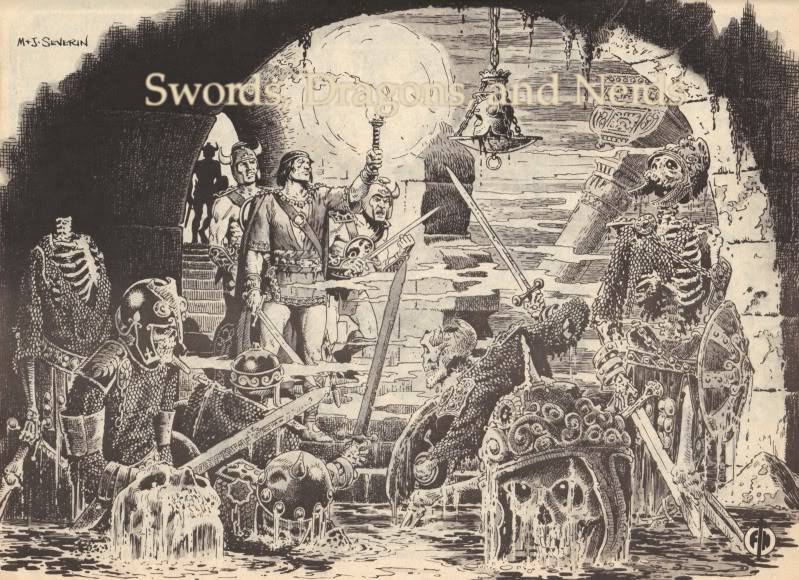I've been reading this for the past two weeks and really enjoying it. The premise is that a young journeyman artist named Rhennythyl discovers that he's a imager and goes to Imageisle to learn how to control and use his new found powers. An imager is sort of like a magic user, I suppose. It's actually kind of hard to categorize imagers. Their powers allow them to create or teleport objects with their brain boxes, though the object they're trying to "image" taxes them, depending on what it is. A small, simple thing is a non-issue, but the larger, more complex a thing is, will leave this exhausted to varying degrees and/or with a headache, especially if the object is made out of certain materials. Not all imagers are powerful. Some are only able to due minor "imaging", while others are much more powerful.
An interesting aspect of the story is that imagers all live separate from society at what are called Collegiums. This is because regardless of whether an imager is untrained or trained, they're dangerous to everyone, including themselves. Primarily, this is because they can unwittingly use their powers while asleep. The other reason is because imagers don't exactly have the confidence and adoration of the public. They're not hated like mutants from Marvel Comics, but people tend to give them a wide berth and walk on eggshells when one is around.
Story-wise, Imager is a good book, but a slow in the beginning. Modesitt spends the first part of the book (I forget how many pages) focusing on Rhenn's years as a journeyman learning to become a portraiturist. That's one of the interesting things about this book. Artists are divided into several specialty fields and they're only allowed to sell paintings in whatever their field is. So, a portraiturist, for example, can only paint portraits for a living. They can paint other things as a hobby, but they can never sell those paintings, less they suffer the consequences. To be honest, this part of the book, while interesting, drags on longer than it probably should. However, once the ball gets rolling, it rolls! I also like the focus on Rhenn's training as an imager, especially the discussions he has with his teacher, which tend to be philosophical and cover subjects such as jurisprudence, government, taxation, etc.
I haven't finished the book yet, but I'm close, so I feel like I can give a recommendation on whether to read Imager or not: It depends. Like I said, the book starts out slow, but it picks up after a while. There's action, but its spread out throughout the book, so if you're one of those folks who like a lot of action in their fantasy reading, this might not tickle your fancy. If you don't much care for the amount of action or the lack thereof, then it might be worth checking out.








